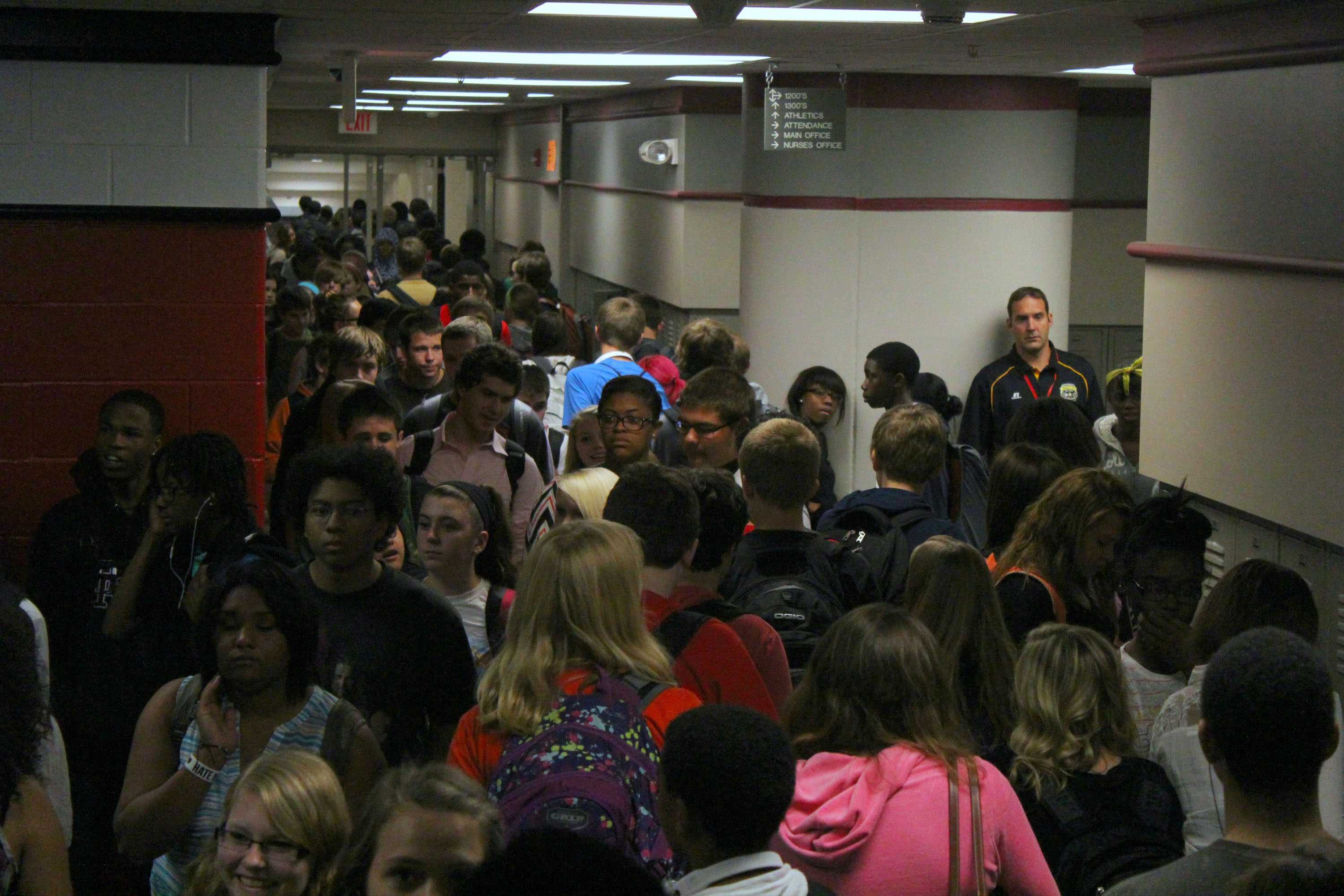Your donation will support the student journalists of Iowa City High School. For 2023, we are trying to update our video and photo studio, purchase new cameras and attend journalism conferences.
Discipline policy changes
Law enforcement in school lessens for minor offenses.
February 15, 2014
The use of law enforcement is the final option for non-violence offences in secondary schools. The Department of Education is asking schools to find other ways to discipline students with the new federal discipline policy, The Supported School Discipline Initiative.
“Using law enforcement is a last resort,” John Bacon, City High Principal said. “What is not under our control, then we call the cops.”
The goal of The Supported School Discipline Initiative is that schools could reduce the time students spend out of school as punishment.
“Keeping kids out of the system [is the goal],” Edgar Arceo, Student Advisory Center adviser said. “Sometimes it’s unavoidable.”
City high aims to work with discipline situations within school instead of out of school.
“We try to process things here and try to keep law enforcement out of it,” Arceo said. “[The Supported School Discipline Initiative] doesn’t affect us as much as other schools.”
In 2011, over 3 million public school students got out-of-school suspension and 100,000 were expelled in the United States. Nationwide, almost 95 percent of out-of-school suspensions are for nonviolent misbehavior according to U.S. Department of Education.
The U.S. Department of Education created a letter and a video to explain The Supported School Discipline Initiative for schools to understand it better.
“The widespread use of suspensions and expulsions has tremendous costs,” Education Secretary Arne Duncan wrote in a letter to schools. “Students who are suspended or expelled from school may be unsupervised during daytime hours and cannot benefit from great teaching, positive peer interactions and adult mentorship offered in class and in school.”
Bacon agrees, but thinks its not an issue for City High.
“Our [out-of-school suspension] has been going in the opposite direction, dramatically reducing out-of-school suspension in this school, although it can still happen,” Bacon said.
Other options are alway looked at before out-of school suspension.
“We try to look at every possible option before out-of-school suspension,” Arceo said.
The Student Advisory Center can serve the purpose of an in-school suspension room which helps manage behavioral situations and has reduced out-of-school suspension.
“The Student Advisory Center has been a wonderful improvement to the disciplinary process,” Bacon said. “It’s also a proactive center that develops relationships and check up on students to make sure they are staying on the right track.”
